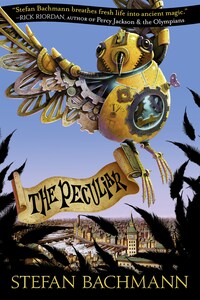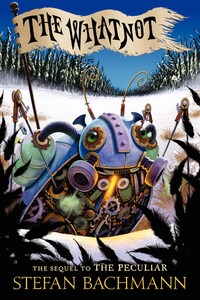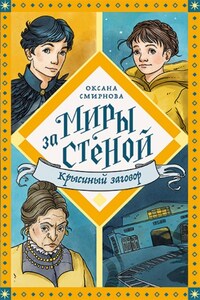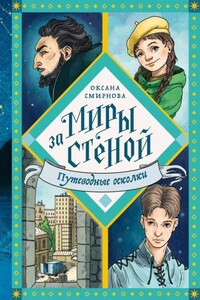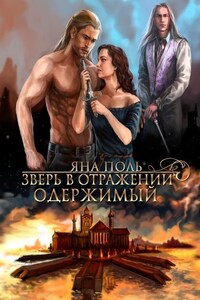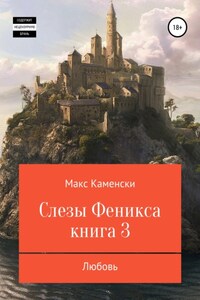Contents
Cover
Title Page
Dedication
Prologue
Chapter I: The Most Prettiest Thing
Chapter II: A Privy Deception
Chapter III: Black Wings and Wind
Chapter IV: Nonsuch House
Chapter V: To Invite a Faery
Chapter VI: Melusine
Chapter VII: A Bad One
Chapter VIII: To Catch a Bird
Chapter IX: In Ashes
Chapter X: The Mechanicalchemist
Chapter XI: Child Number Ten
Chapter XII: The House and the Anger
Chapter XIII: Out of the Alley
Chapter XIV: The Ugliest Thing
Chapter XV: Goblin Market
Chapter XVI: Greenwitch
Chapter XVII: The Cloud That Hides the Moon
Chapter XVIII: The Peculiar
Copyright
About the Publisher
EATHERS fell from the sky.
Like black snow, they drifted onto an old city called Bath. They whirled down the roofs, gathered in the corners of the alleys, and turned everything dark and silent, like a winter’s day.
The townsfolk thought it odd. Some locked themselves in their cellars. Some hurried to church. Most opened umbrellas and went about their business. At four o’clock in the afternoon, a group of bird catchers set off on the road to Kentish Town, pulling their cages in a cart behind them. They were the last to see Bath as it had been, the last to leave it. Sometime in the night of the twenty-third of September, there was a tremendous noise like wings and voices, creaking branches and howling winds, and then, in the blink of an eye, Bath was gone, and all that remained were ruins, quiet and desolate under the stars.
There were no flames. No screams. Everyone within five leagues disappeared, so there was no one left to speak to the bailiff when he came riding up the next morning on his knock-kneed horse.
No one human.
A farmer found him hours later, standing in a trampled field. The bailiff’s horse was gone and his boots were worn to nothing, as if he had been walking many days. “Cold,” he said, with a faraway look. “Cold lips and cold hands and so peculiar.”
That was when the rumors started. Monsters were crawling from the ruins of Bath, the whispers said, bone-thin fiends and giants as tall as the hills. On the nearby farms, people nailed herbs to their door-posts and tied their shutters closed with red ribbons. Three days after the city’s destruction, a group of scientists came down from London to examine the place where Bath had been, and were next seen in the crown of a gnarled oak, their bodies white and bloodless, their jackets pierced through and through with twigs. After that, people locked their doors.
Weeks passed, and the rumors turned to worse things. Children disappeared from their beds. Dogs and sheep went suddenly lame. In Wales, folk went into the woods and never came out. In Swainswick, a fiddle was heard playing in the night, and all the women of the town went out in their bed-gowns and followed it. No one ever saw them again.
Thinking this might be the work of one of England’s enemies, Parliament ordered a company of troops to Bath at once. The troops arrived, and though they found no rebels or Frenchmen among the tumbled stones, they did find a little battered notebook belonging to one of the scientists who had met his death in the oak. There were only a few pages of writing in it, badly splotched and very hurried, but it caused a sensation all over the country. It was published in pamphlets and newspapers, and limed up onto walls. Butchers read it, and silk weavers read it; schoolchildren, lawyers, and dukes read it, and those who could not read had it read to them in taverns and town squares.
The first part was all charts and formulas, interspersed with sentimental scribblings about someone named Lizzy. But as the writing proceeded, the scientist’s observations became more interesting. He wrote of the feathers that had fallen on Bath, how they were not the feathers of any bird. He wrote of mysterious footprints and strange scars in the earth. Finally he wrote of a long shadowy highway dissolving in a wisp of ash, and of creatures known only in tales. It was then that everyone knew for certain what they had been dreading all along: the Small Folk, the Hidden People, the Sidhe had passed from their place into ours. The faeries had come to England.
They came upon the troops in the night—goblins and satyrs, gnomes, sprytes, and the elegant, spindly white beings with their black, black eyes. The officer in command of the English, a well-starched man named Briggs, told them straightaway that they were suspected of great crimes and must go to London at once for interrogation, but it was a ridiculous thing, like telling the sea it must be judged for all the ships it had swallowed. The faeries had no intention of listening to these clumsy, red-clad men. They ran circles around them, hissing and teasing. A pale hand reached out to pluck at a red sleeve. A gun fired in the darkness. That was when the war started.
It was called the Smiling War because it left so many skulls, white and grinning, in the fields. There were few real battles. No great marches or heroic charges to write poems about later. Because the fay were not like men. They did not follow rules, or line up like tin soldiers.
